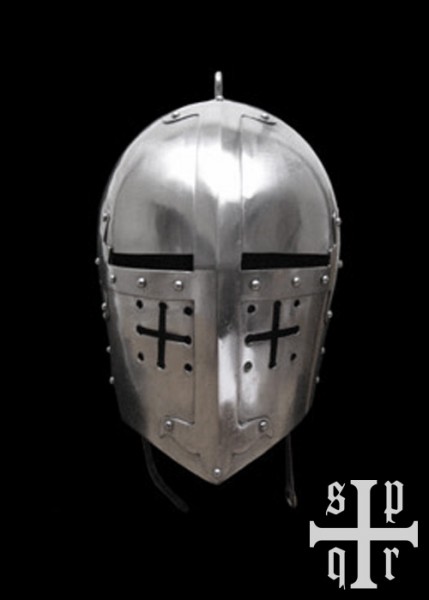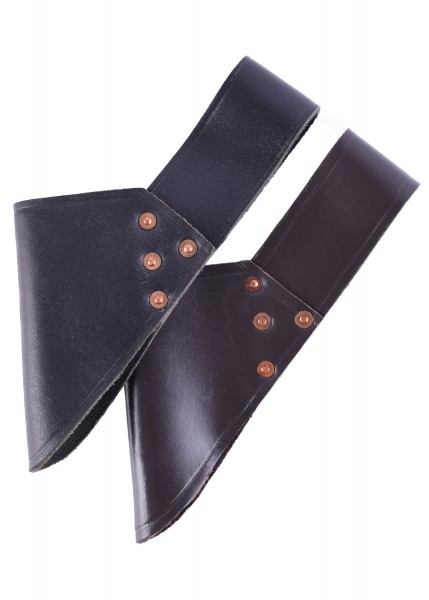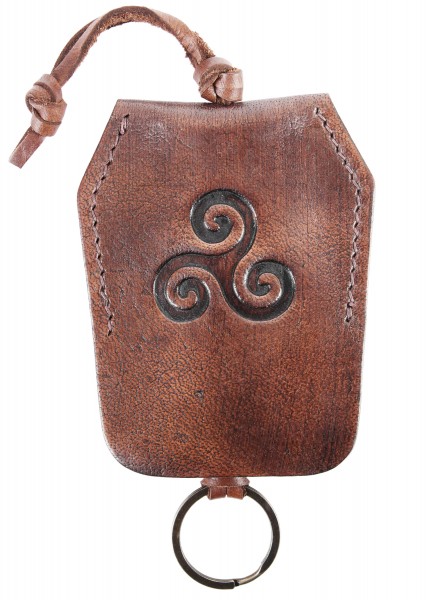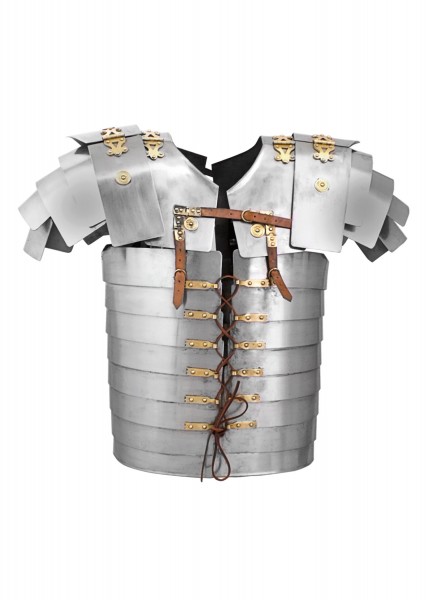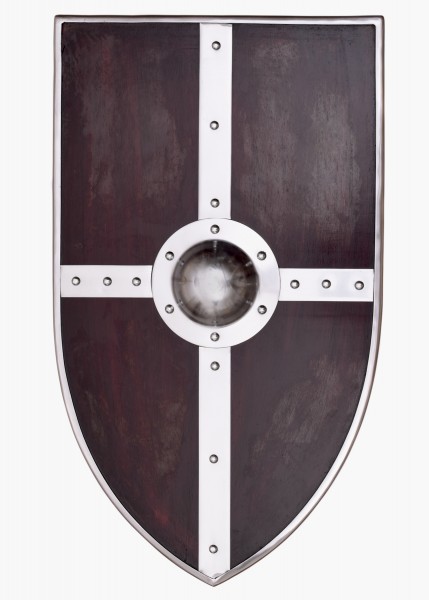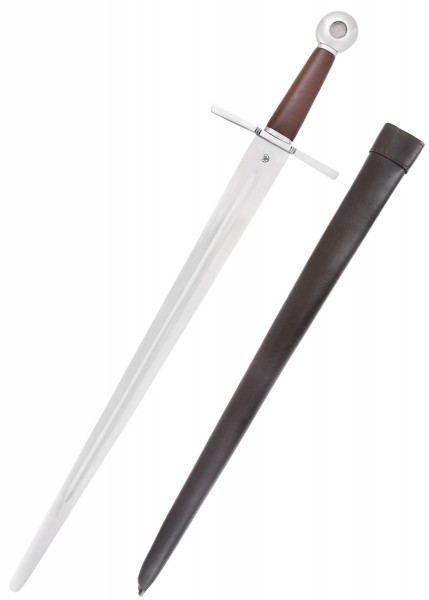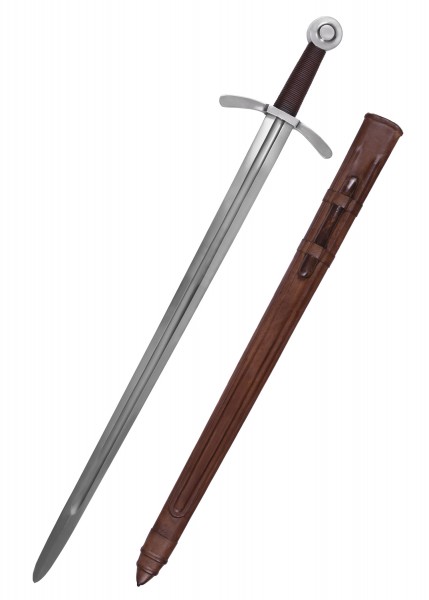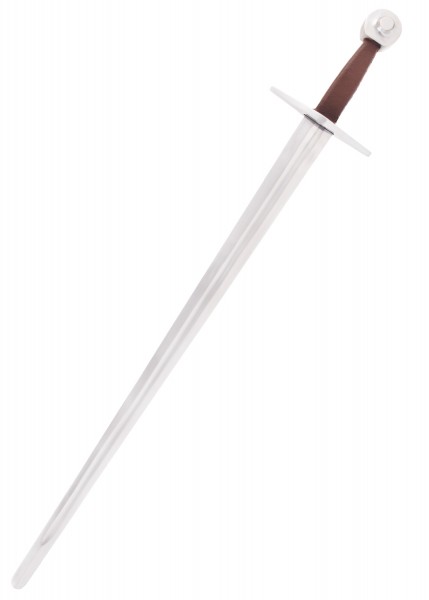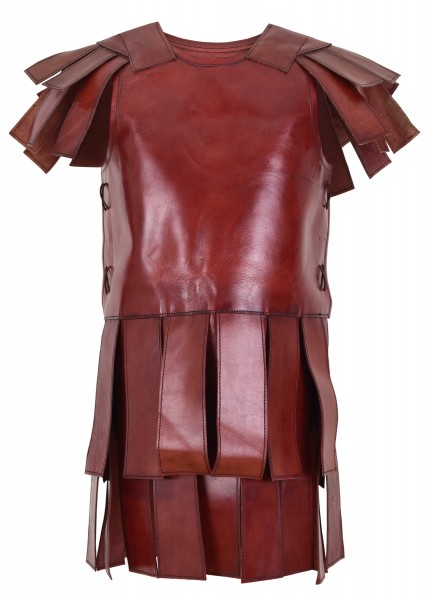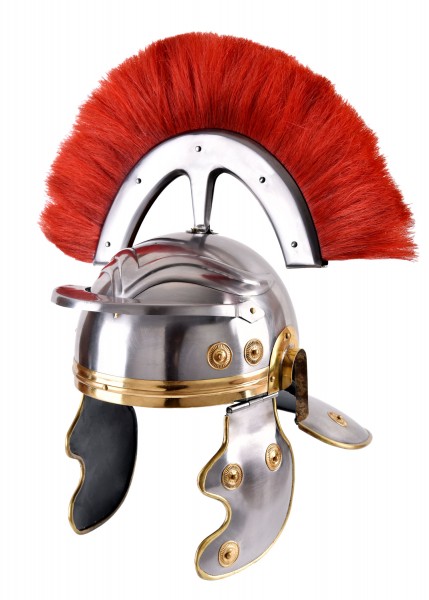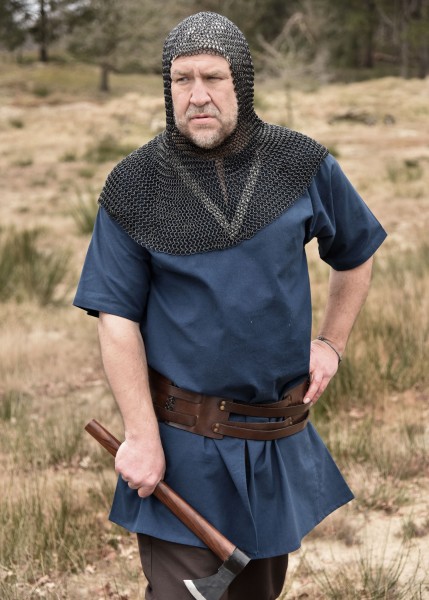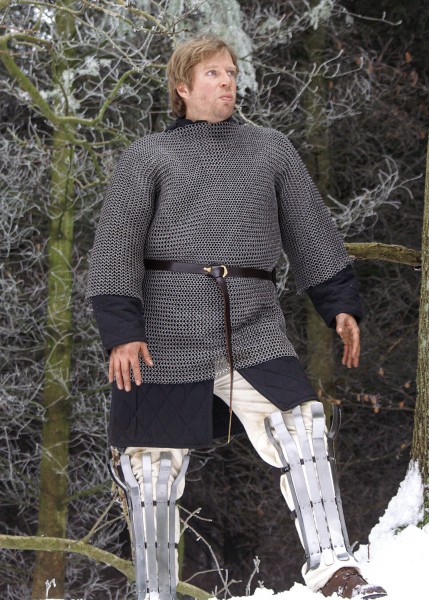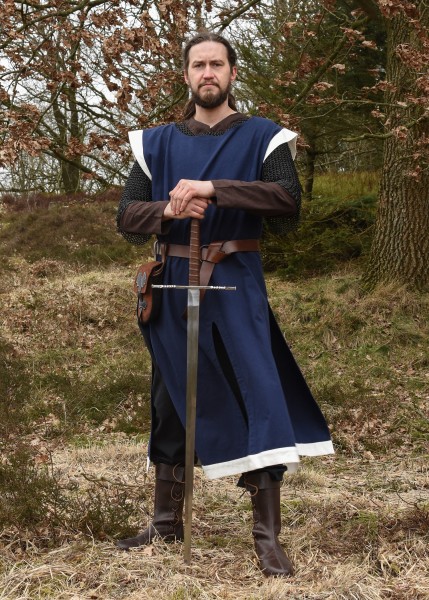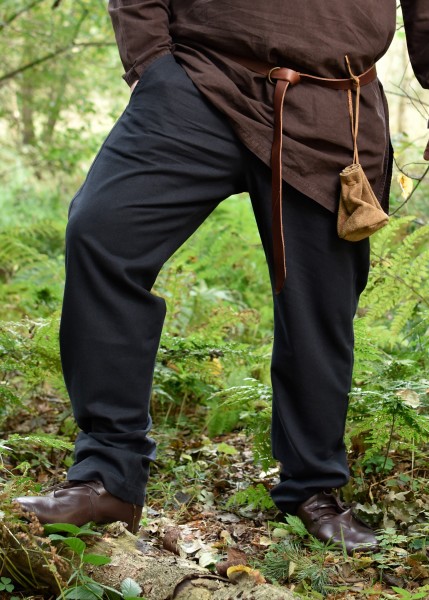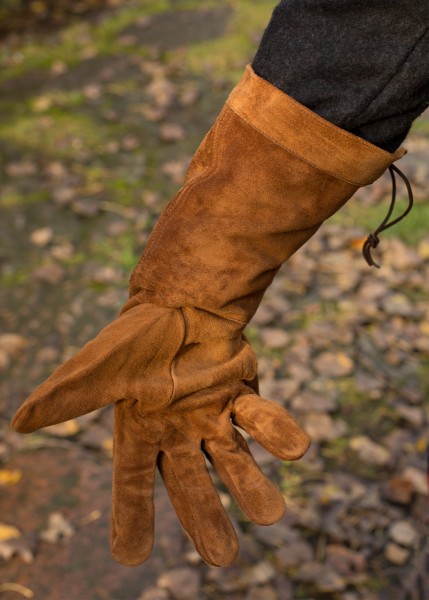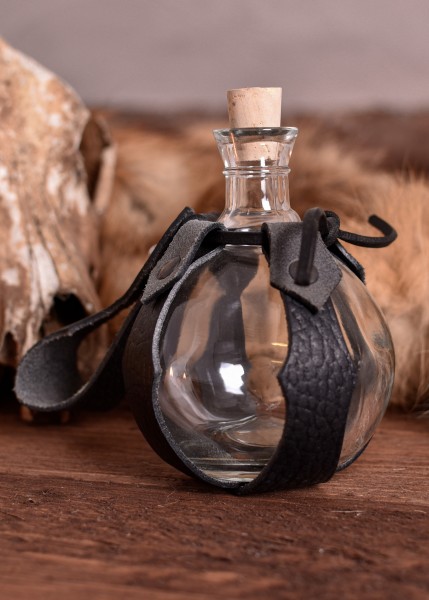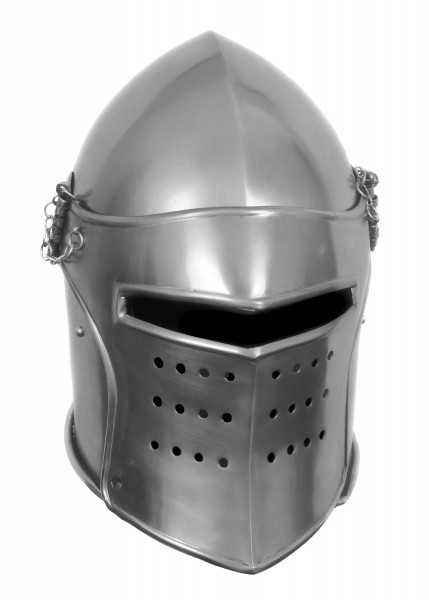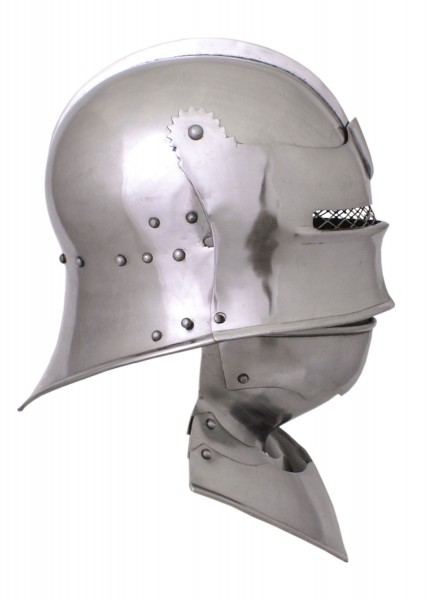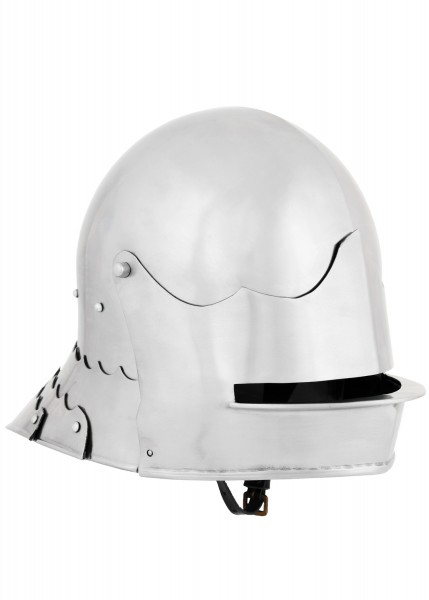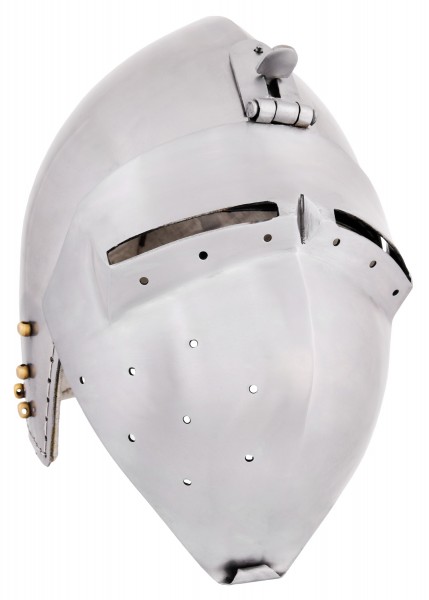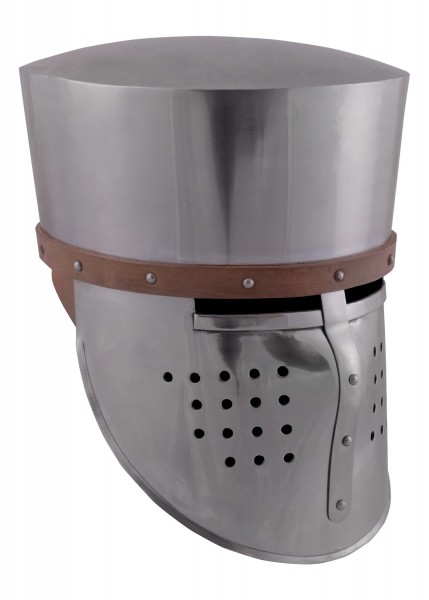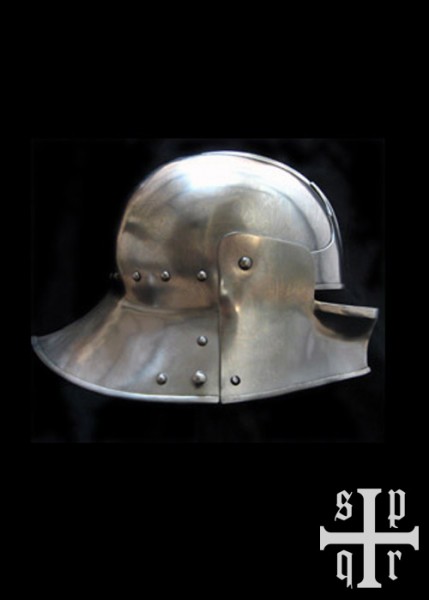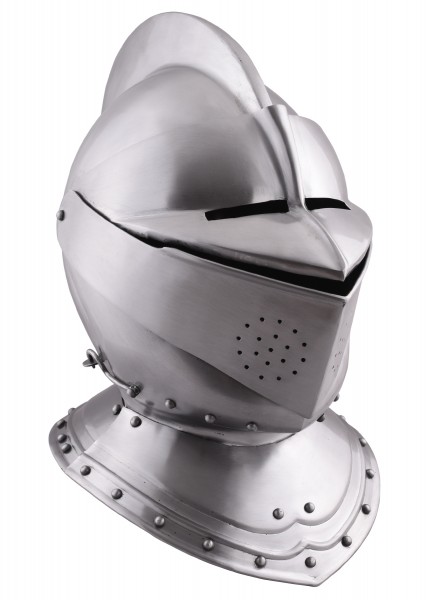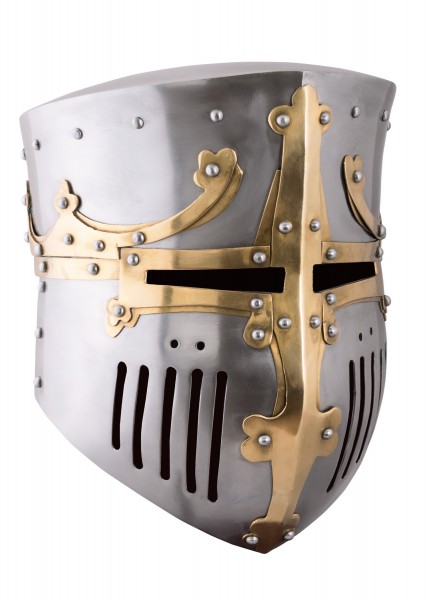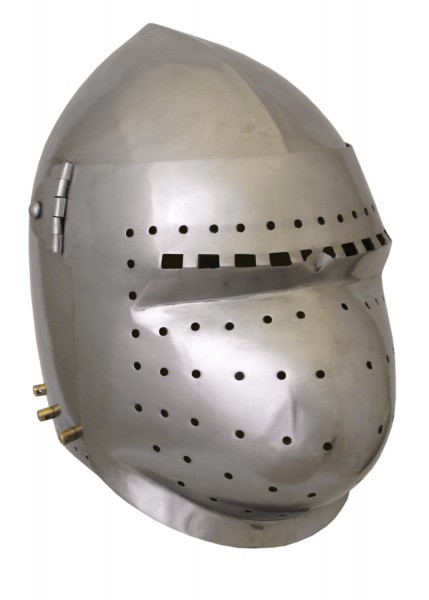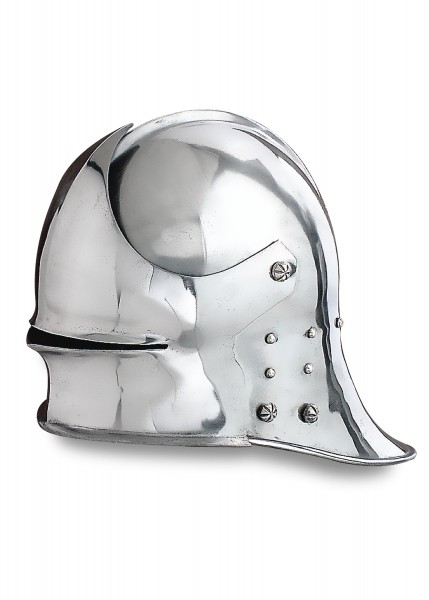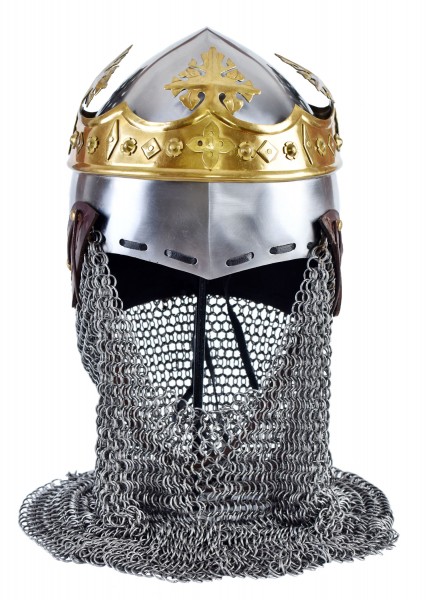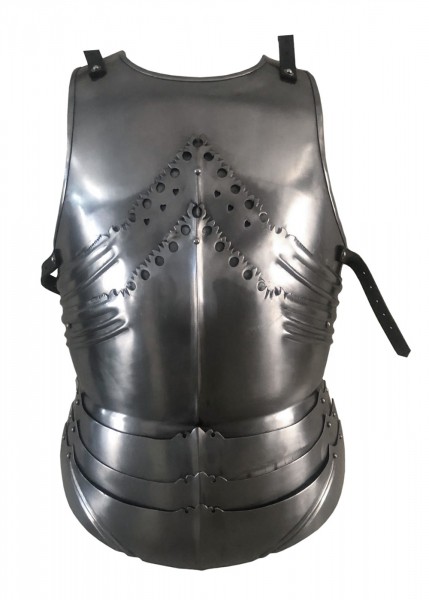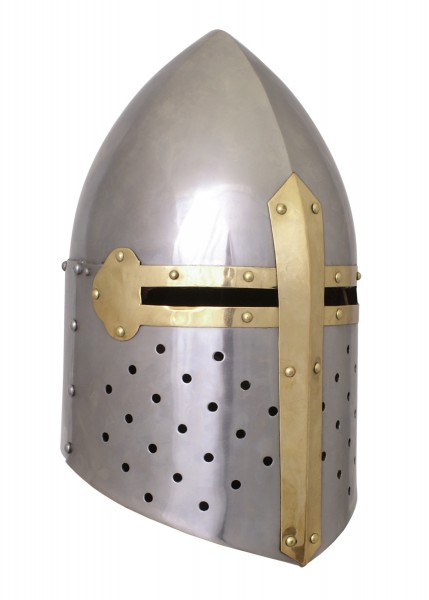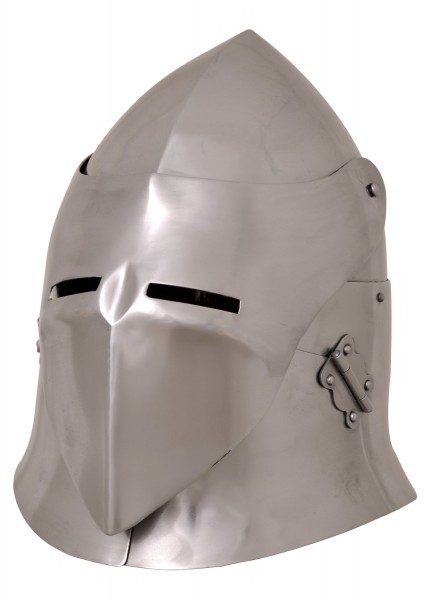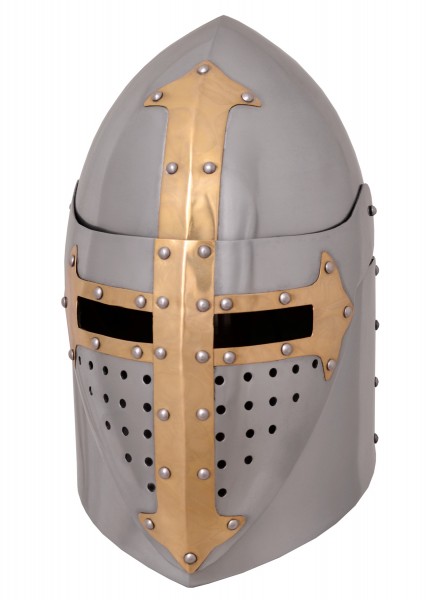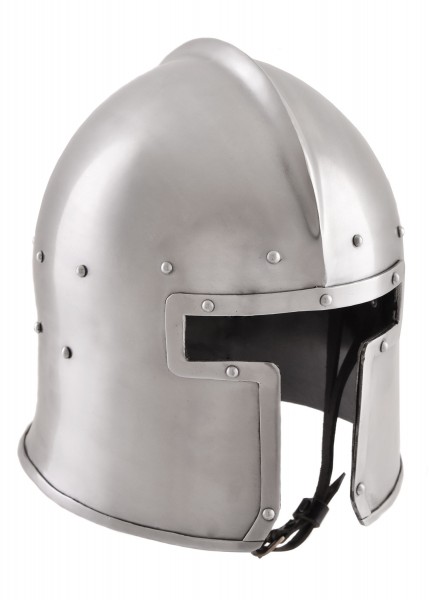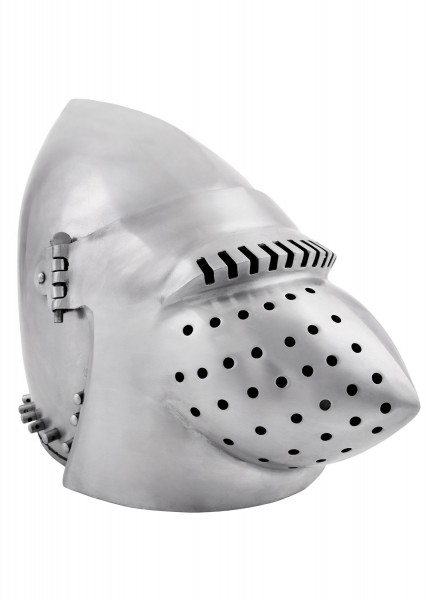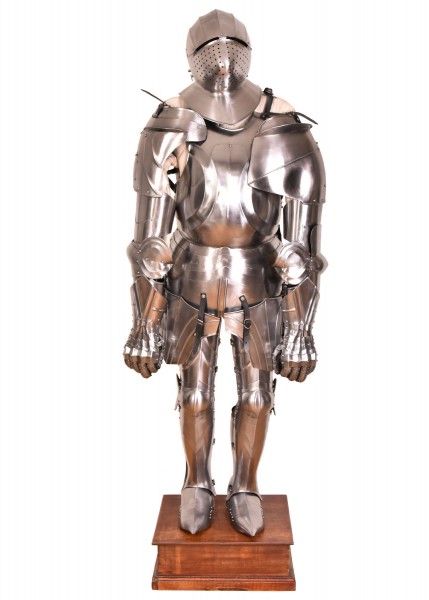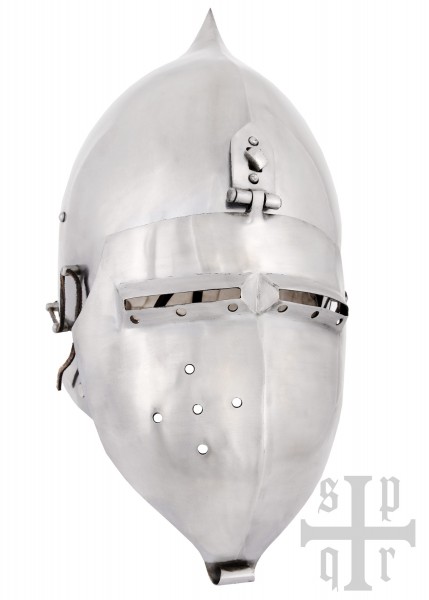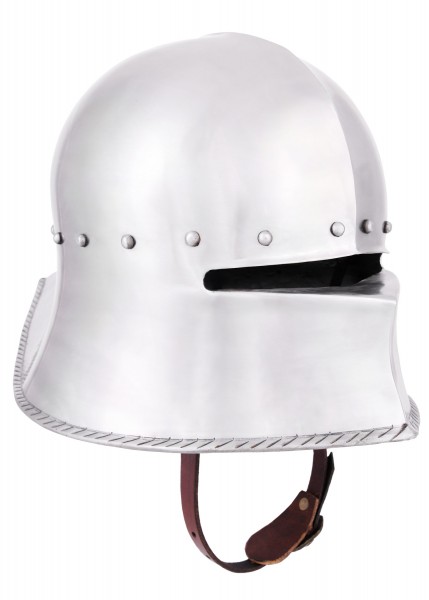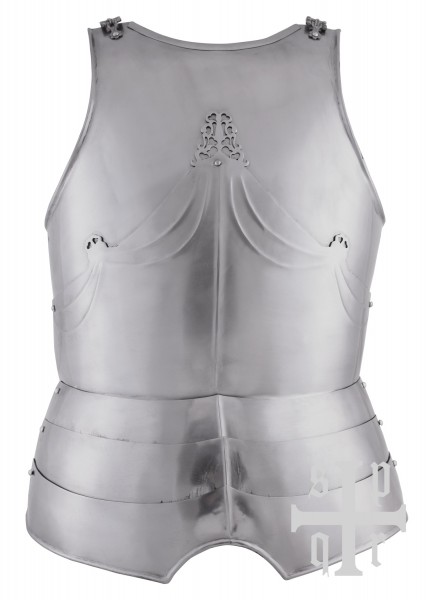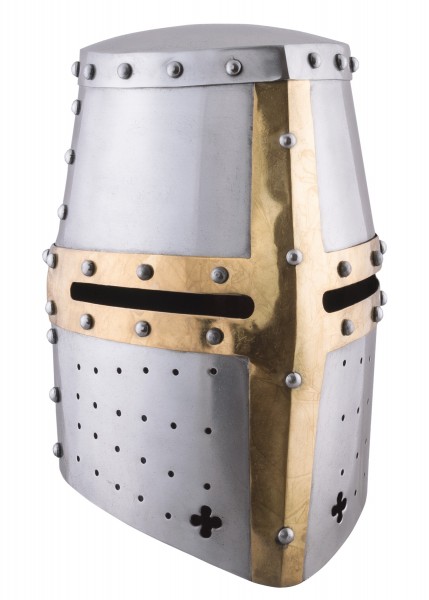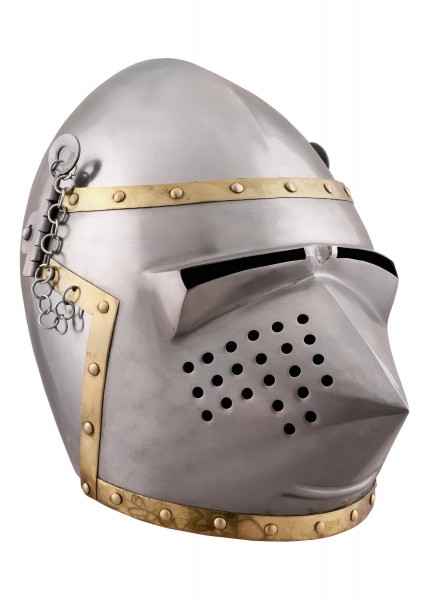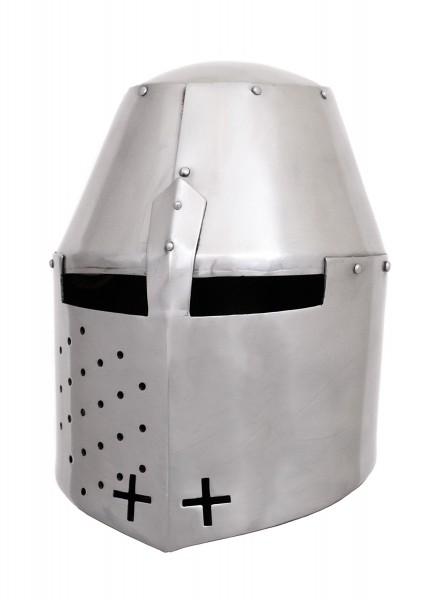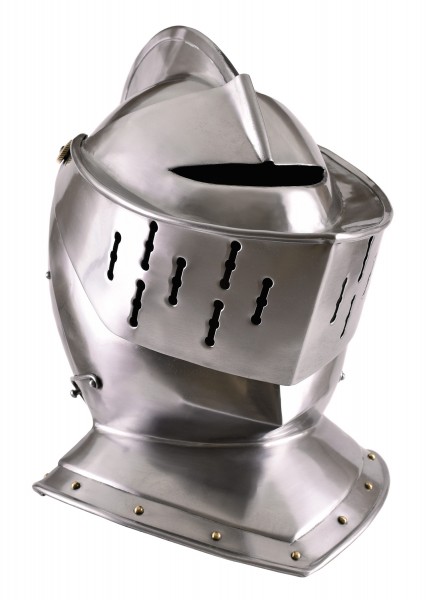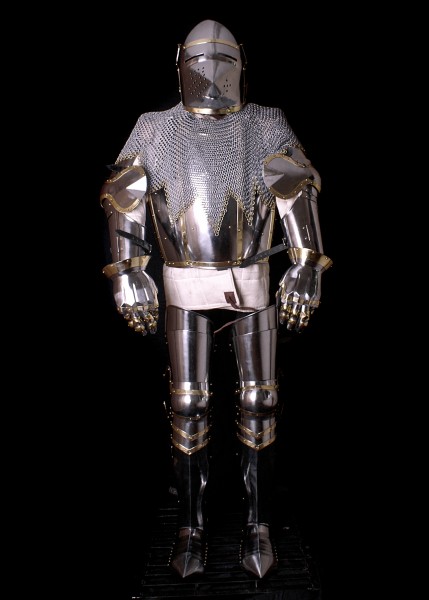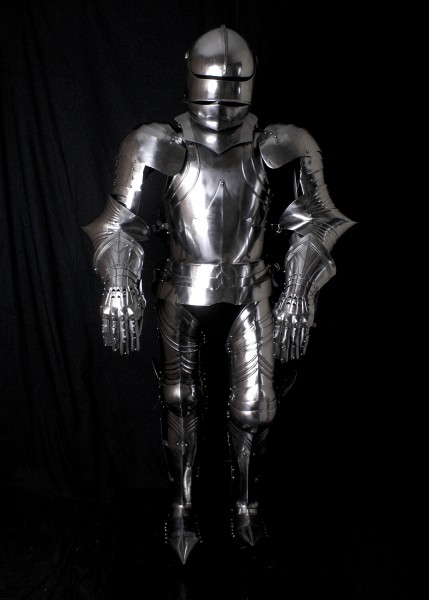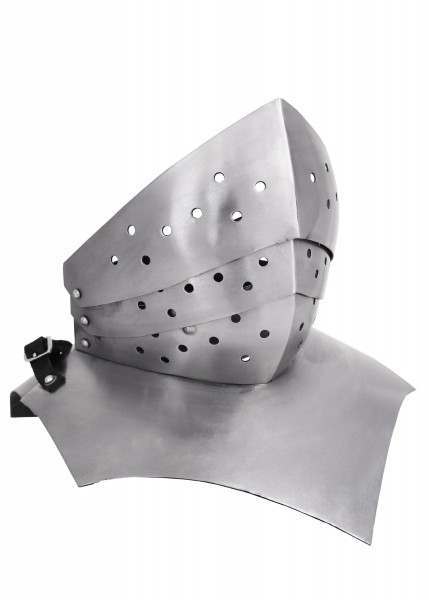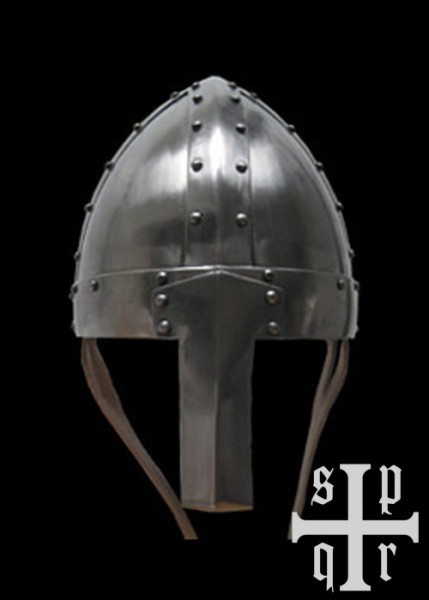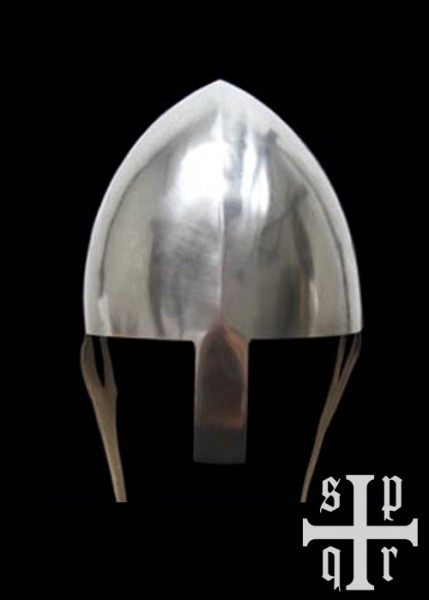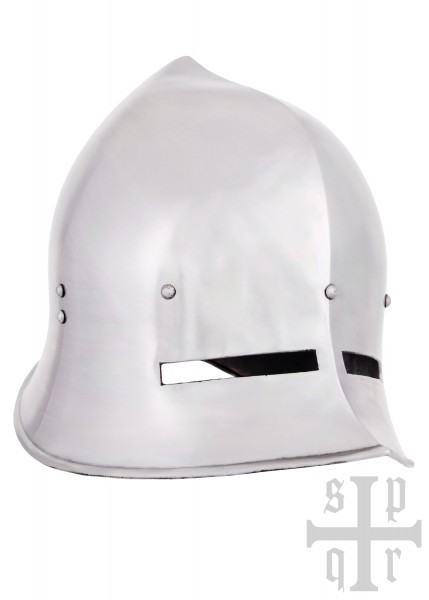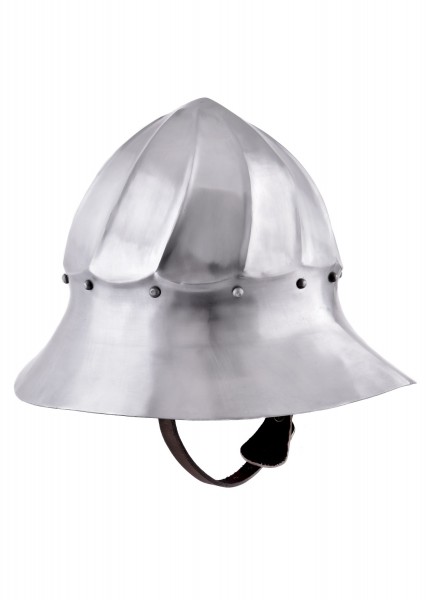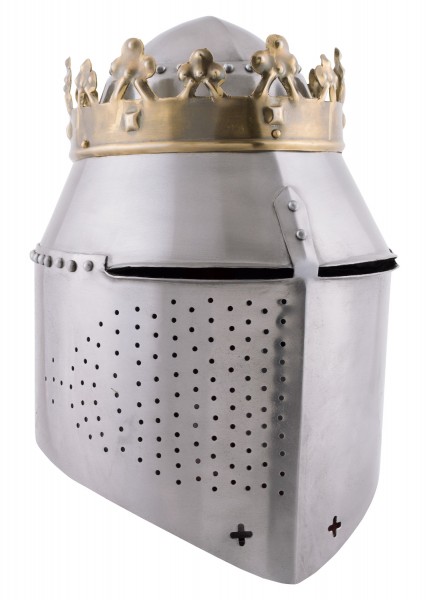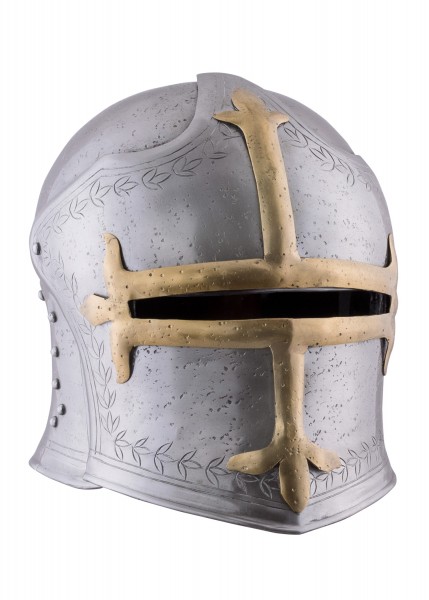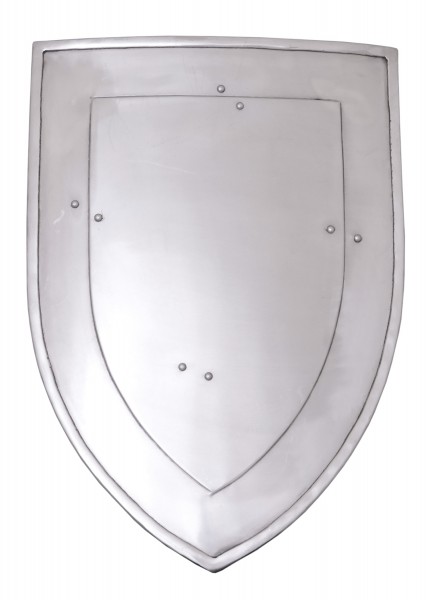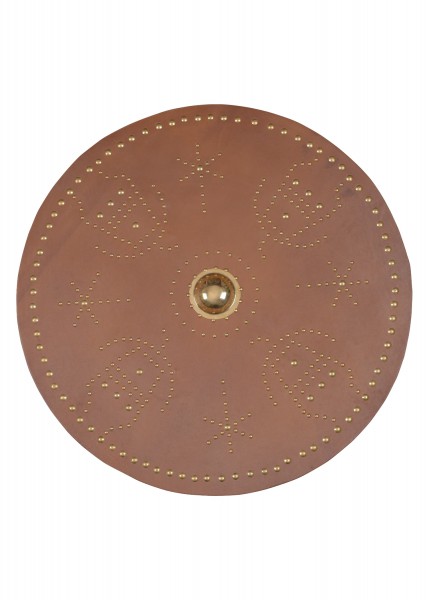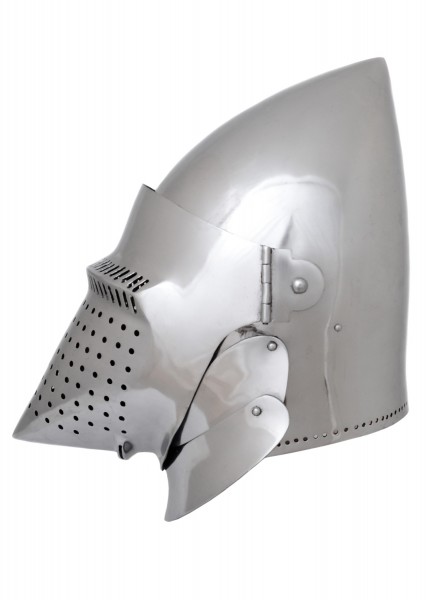Great Helm of William de Staunton, 14th Century
Item no.:
SPQR-H034
EAN:
4255747701796
€149.99
Prices incl. VAT plus shipping costs
Ready to ship, Delivery time approx. 1-3 working days
Only 4 available.
Great Helm of William de Staunton, Medieval Pot Helmet, 14th Century The so-called Great Helm...more
Product information "Great Helm of William de Staunton, 14th Century"
Great Helm of William de Staunton, Medieval Pot Helmet, 14th Century
The so-called Great Helm (also called great helmet, great heaume, pot helmet, bucket helmet or barrel helmet) was often worn over a smaller, lighter helmet (e.g. a cervelliere / secret helmet) and was widespread throughout Central Europe in the Middle Ages. Numerous historical illustrations, miniatures and finds from Germany, Flanders, England, Italy, Switzerland, Austria, etc. bear testimony to the popularity of this particular type of helmet at the time. Such helmets emerged during the Crusades in the late 12th / early 13th c. and were commonly worn by knights until well into the 14th c.
The late medieval pot helmet we offer here is based on an early 14th century stone relief depicting a knight with a dog at his feet, and a shield and a helmet over his body (see last picture above). The inscription running around the edge of the slab identifies the knight as Sir William de Staunton and reads: Hic jacet Wilelmus de Staunton Miles filius Galfridi de eadem militis qui obit nonis Maii anno domin mcccxxxvi. Cujus animae propitietur Deus (approx.: "Here lies William de Staunton Miles, son of Galfrid of the same soldiers, who died on the ninth of May in the year of the Lord 1326. To whose soul may God have mercy"). The sunk relief (originally a stone coffin lid) can be seen in St Mary’s Church in Staunton, Nottinghamshire, England.
Our reconstruction is crafted from approx. 1.6 mm thick steel and features a stylised cross on its front, cross-shaped and round cutouts that ensure proper ventilation, and approx. 10.5 cm long, 1.2 cm wide eye-slits. The helmet’s individual component parts are all connected to each other by steel rivets. The helmet’s bowl is topped with a ring to attach a horsehair plume or a feather (not included in the scope of delivery.)
The interior is blackened for better corrosion resistance, and fitted with a brown leather suspension liner attached with rivets. The adjustable chin strap made of brown, sturdy leather closes with an antiqued brass buckle.
Suitable for re-enactment, LARP, stage or TV/film, this fully wearable knightly helm is most fitting for settings of the late Middle Ages and ideal to complete the armour of a European warrior. It will make your transformation into a noble knight just perfect, and is a great, decorative addition to any helmet collector’s treasure chamber.
Details:
- Material: 1.6 mm steel, leather inlay, leather chin strap with antiqued brass buckle
- Suitable for head circumference up to approx. 74 cm
- Long distance (back to front): approx. 25 cm
- Short distance (ear to ear): approx. 22 cm
- Height: approx. 37 cm with ring / 34 cm without ring
- Weight: approx. 3.2 kg
Specs may slightly vary from piece to piece.
The steel used here is not rust-proof and might show slight surface tarnishing in places. We recommend you to maintain helmets (and armour in general) on a regular basis, for example using Ballistol Universal Oil, which is ideally suited for steel care.
The so-called Great Helm (also called great helmet, great heaume, pot helmet, bucket helmet or barrel helmet) was often worn over a smaller, lighter helmet (e.g. a cervelliere / secret helmet) and was widespread throughout Central Europe in the Middle Ages. Numerous historical illustrations, miniatures and finds from Germany, Flanders, England, Italy, Switzerland, Austria, etc. bear testimony to the popularity of this particular type of helmet at the time. Such helmets emerged during the Crusades in the late 12th / early 13th c. and were commonly worn by knights until well into the 14th c.
The late medieval pot helmet we offer here is based on an early 14th century stone relief depicting a knight with a dog at his feet, and a shield and a helmet over his body (see last picture above). The inscription running around the edge of the slab identifies the knight as Sir William de Staunton and reads: Hic jacet Wilelmus de Staunton Miles filius Galfridi de eadem militis qui obit nonis Maii anno domin mcccxxxvi. Cujus animae propitietur Deus (approx.: "Here lies William de Staunton Miles, son of Galfrid of the same soldiers, who died on the ninth of May in the year of the Lord 1326. To whose soul may God have mercy"). The sunk relief (originally a stone coffin lid) can be seen in St Mary’s Church in Staunton, Nottinghamshire, England.
Our reconstruction is crafted from approx. 1.6 mm thick steel and features a stylised cross on its front, cross-shaped and round cutouts that ensure proper ventilation, and approx. 10.5 cm long, 1.2 cm wide eye-slits. The helmet’s individual component parts are all connected to each other by steel rivets. The helmet’s bowl is topped with a ring to attach a horsehair plume or a feather (not included in the scope of delivery.)
The interior is blackened for better corrosion resistance, and fitted with a brown leather suspension liner attached with rivets. The adjustable chin strap made of brown, sturdy leather closes with an antiqued brass buckle.
Suitable for re-enactment, LARP, stage or TV/film, this fully wearable knightly helm is most fitting for settings of the late Middle Ages and ideal to complete the armour of a European warrior. It will make your transformation into a noble knight just perfect, and is a great, decorative addition to any helmet collector’s treasure chamber.
Details:
- Material: 1.6 mm steel, leather inlay, leather chin strap with antiqued brass buckle
- Suitable for head circumference up to approx. 74 cm
- Long distance (back to front): approx. 25 cm
- Short distance (ear to ear): approx. 22 cm
- Height: approx. 37 cm with ring / 34 cm without ring
- Weight: approx. 3.2 kg
Specs may slightly vary from piece to piece.
The steel used here is not rust-proof and might show slight surface tarnishing in places. We recommend you to maintain helmets (and armour in general) on a regular basis, for example using Ballistol Universal Oil, which is ideally suited for steel care.
Links related to "Great Helm of William de Staunton, 14th Century"
Cookie settings
This website uses cookies which are necessary for the technical operation of the website and are always set. Other cookies, which increase the comfort when using this website, are used for direct advertising or to facilitate interaction with other websites and social networks, are only set with your consent.
Last viewed






